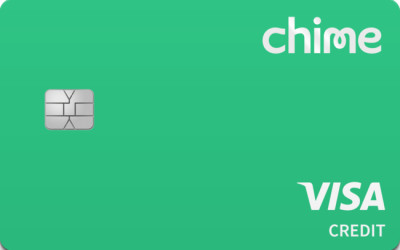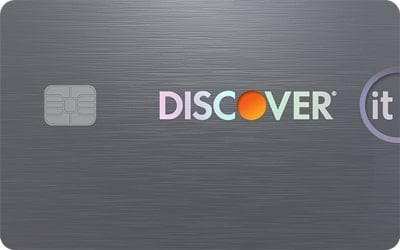Secured Bank Cards
Even if you're starting with no credit history or dealing with a low credit score, obtaining a credit card might be within your reach. Secured credit cards are specifically designed by issuers to offer a more accessible pathway for building or repairing your credit. Remarkably, some of these cards even offer substantial rewards without the burden of an annual fee. However, the trade-off is that you'll be required to provide a refundable security deposit, which serves as the basis for your credit limit.
Explore our endorsed choices for the finest secured credit cards available through our partners and embark on your journey to establish or rebuild your credit today.
Best Secured Bank Cards offers

The Chime Credit Builder Visa® Credit Card doesn't require a minimum deposit or charge an annual fee, making it an accessible option for building credit. However, it's important to note that you must be a Chime banking customer to apply for this card.
Pros and cons

The Discover it® Secured Credit Card stands out as the top choice among secured credit cards due to its attractive rewards program, absence of an annual fee, and the potential for account upgrades.
Pros and cons
FAQ
What is a secured bank card?
- Security Deposit: When you apply for a secured credit card, you are required to make a cash deposit with the card issuer. This deposit typically serves as collateral and is used as a security measure by the issuer. The amount of the deposit is often equal to your credit limit, but it can vary depending on the card issuer and the terms of the card.
- Credit Limit: Your credit limit on a secured credit card is usually determined by the amount of your security deposit. For example, if you deposit $500, your credit limit will typically be $500. This means you cannot spend more than the deposited amount.
- Credit Usage: Just like with a regular credit card, you can use a secured credit card to make purchases. Your card issuer will send you a monthly statement detailing your transactions and the amount you owe.
- Payments: To build or improve your credit history, it's essential to make timely payments on your secured card. Your payment history is reported to the major credit bureaus, so responsible use can positively impact your credit score over time.
- Security Deposit Refund: If you decide to close your secured credit card account and have paid off any outstanding balances, the issuer will typically refund your security deposit. This is often a key benefit of secured cards, as it allows you to recoup your initial deposit.
- Graduation to Unsecured: Some secured card issuers may review your account after a period of responsible use, and if they see improvement in your creditworthiness, they may offer to upgrade your account to an unsecured credit card. This means you would no longer need to provide a security deposit.
Does a secured card build credit?
What’s the security deposit?
Prior to submitting your application, it's essential to verify that the credit card's specified minimum and maximum security deposit amounts align with your budget. Security deposit requirements can vary widely, ranging from as low as $49 to several thousand dollars, depending on the specific card and the issuing institution.
Additionally, it's important to note the preferred payment methods for the security deposit. Some secured credit cards may mandate the use of a bank account for deposit payment, while others may offer flexibility by accepting payments through methods such as checks or money orders.
Can I increase my credit limit on a secured credit card?
Increasing your credit limit on a secured credit card may be achievable by raising your security deposit, although there might be a limit to how much you can deposit. Some secured credit cards have a system in place where they periodically review your account, especially if you've demonstrated responsible card use over time. During these reviews, they may consider offering an increase in your credit limit.
It's important to note that not all secured credit cards automatically provide credit limit increases, so it's advisable to check with the card issuer to determine whether this option is available and the specific process for requesting or obtaining a credit limit increase.
What’s the difference between a secured card and a regular?
A secured credit card differs from a regular (unsecured) credit card in that it requires you to make a security deposit before obtaining a line of credit. This deposit serves as collateral in case you fail to make payments on your credit card bill. Generally, the deposit amount is equivalent to your credit limit. For example, if you deposit $500, your credit line will typically be $500.
Once you've made the required deposit, you can use the secured card like any other credit card. You're able to make purchases with it, and you're obligated to make monthly payments on the card.
Secured credit cards are often more accessible to individuals with limited or poor credit histories, providing an opportunity to build or rebuild credit. However, they usually come with lower spending limits and may have associated fees.
Typically, people use secured credit cards for a specific period as they work on improving their creditworthiness. The goal is often to qualify for an unsecured credit card, which doesn't require a security deposit.